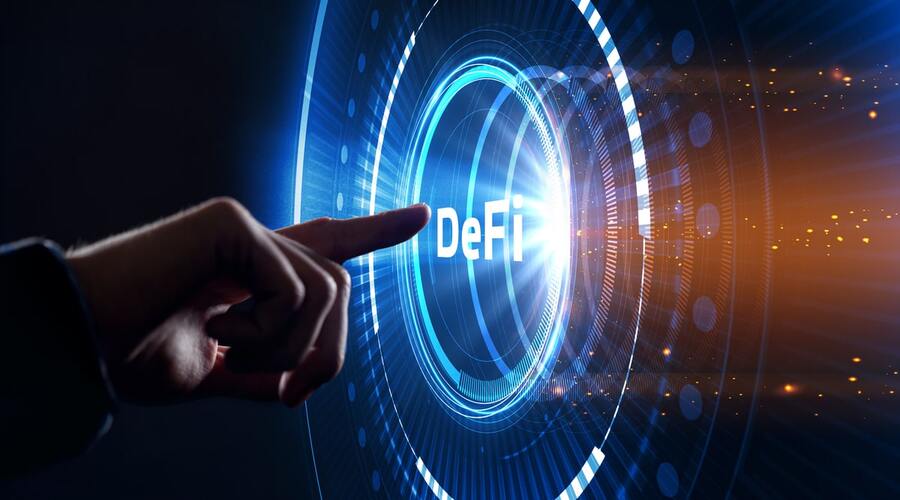
The Importance of Security in Decentralized Finance (DeFi)
- summy Morphe
- May 22, 2023
- Defi
- DeFi, DeFi security
- 0 Comments
Decentralized Finance (DeFi) has emerged as a transformative force in the world of finance, offering individuals greater financial freedom, transparency, and control over their assets. As the popularity of DeFi continues to grow, it becomes paramount to address the significance of security within this ecosystem. This article will explore the crucial role that security plays in DeFi, highlighting the challenges it faces and providing insights into best practices for safeguarding user funds and smart contracts.
Introduction
In recent years, DeFi has gained significant attention as it eliminates the need for intermediaries and allows users to participate directly in financial activities such as lending, borrowing, and trading through decentralized applications (dApps) built on blockchain networks. While DeFi offers numerous benefits, it also presents unique security challenges that must be addressed to ensure the integrity and trustworthiness of the ecosystem.
Understanding Decentralized Finance (DeFi)
Before delving into the importance of security in DeFi, it is essential to grasp the fundamentals of this innovative concept. DeFi refers to a system where traditional financial intermediaries like banks are replaced by smart contracts and decentralized protocols. These protocols are typically built on blockchain networks, such as Ethereum, enabling users to interact with financial services directly using their digital assets.
Security Challenges in DeFi
The decentralized nature of DeFi brings both opportunities and vulnerabilities. Several security challenges exist within the DeFi ecosystem, including:
- Smart Contract Risks: Smart contracts are self-executing contracts with predefined conditions. However, they are not immune to vulnerabilities, and even a minor flaw in the code can be exploited by attackers.
- Malicious Attacks: DeFi platforms can become targets for hackers aiming to exploit vulnerabilities, execute unauthorized transactions, or steal user funds.
- Regulatory Compliance: The evolving regulatory landscape presents a challenge for DeFi platforms to ensure compliance without compromising user privacy and security.
Importance of Security in DeFi
Security is paramount in DeFi for several reasons. By prioritizing security measures, the DeFi ecosystem can:
Protecting User Funds
One of the primary objectives of security in DeFi is to protect user funds from unauthorized access and theft. Implementing robust security protocols, such as secure key management and multi-signature authentication, helps ensure that users’ digital assets remain secure.
Safeguarding Smart Contracts
Securing smart contracts is crucial as they form the backbone of DeFi applications. Thorough code auditing, rigorous testing, and continuous monitoring help identify and fix vulnerabilities, reducing the risk of potential exploits.
Preventing Unauthorized Access
DeFi platforms must establish robust security measures to prevent unauthorized access to users’ accounts and sensitive information. Utilizing advanced encryption techniques, strong passwords, and two-factor authentication can significantly enhance the security posture of DeFi platforms.
Addressing Regulatory Concerns
The integration of regulatory compliance measures within DeFi platforms is vital for the long-term sustainability of the ecosystem. By implementing know-your-customer (KYC) and anti-money laundering (AML) protocols, DeFi platforms can strike a balance between security and regulatory compliance.
Best Practices for Secure DeFi

To mitigate security risks and enhance the overall security of DeFi, the following best practices should be adopted:
Code Auditing and Testing
Regular code audits and thorough testing are essential to identify and rectify vulnerabilities in smart contracts and dApps before they are deployed in the production environment. Collaborating with reputable security firms specializing in blockchain audits can provide valuable insights into potential weaknesses.
Secure Key Management
Effective key management practices, such as using hardware wallets or secure storage solutions, can safeguard private keys from unauthorized access. Additionally, employing robust backup and recovery mechanisms minimizes the risk of irreversible loss.
Utilizing Multi-signature
Multi-signature, or multi-sig, technology requires multiple parties to sign off on transactions, adding an extra layer of security. Implementing multi-sig wallets and multi-factor authentication can significantly reduce the risk of unauthorized transactions.
Embracing Decentralized Identities
Decentralized Identity (DID) solutions enable users to have control over their digital identities, enhancing privacy and security within the DeFi ecosystem. By leveraging DID frameworks, users can authenticate themselves without relying on centralized identity providers.
The Role of Audits and Security Firms
Audits conducted by reputable security firms play a crucial role in ensuring the security and integrity of DeFi platforms. These audits evaluate smart contracts, codebases, and overall system architecture to identify vulnerabilities and recommend security enhancements. Engaging with security firms specialized in blockchain security can provide valuable insights and help maintain the trust of users.
Collaborative Efforts for Enhanced Security
Enhancing security in DeFi requires collaboration among various stakeholders, including developers, auditors, security researchers, and community members. Promoting open discussions, bug bounties, and responsible disclosure programs fosters a culture of security and enables the identification and timely resolution of vulnerabilities.
Balancing Innovation and Security
While security is of utmost importance in DeFi, it should not hinder innovation within the ecosystem. Striking a balance between security measures and the ability to innovate is essential. This can be achieved through continuous research and development, active participation from the community, and responsible adoption of new technologies.
Importance of Security in DeFi
Security is paramount in DeFi for several reasons. By prioritizing security measures, the DeFi ecosystem can:
Protecting User Funds
In the decentralized finance (DeFi) landscape, protecting user funds is of utmost importance. Users entrust their digital assets to DeFi platforms with the expectation that their funds will remain secure. Implementing robust security protocols is crucial to safeguard user funds from unauthorized access and theft.
Secure key management is a fundamental aspect of protecting user funds. DeFi platforms should encourage users to utilize hardware wallets or secure storage solutions to store their private keys securely. These physical devices offer enhanced protection against hacking attempts and minimize the risk of key compromise. Additionally, implementing strong password policies and enforcing two-factor authentication can significantly enhance the security posture of DeFi platforms.
Safeguarding Smart Contracts
Smart contracts serve as the backbone of DeFi applications, automating various financial transactions without relying on intermediaries. However, smart contracts are not immune to vulnerabilities. Even a minor flaw in the code can lead to significant financial losses or exploitation by malicious actors.
To safeguard smart contracts, thorough code auditing and rigorous testing are essential. Regular code audits by experienced security professionals can identify vulnerabilities and ensure the contracts function as intended. Furthermore, developers should conduct extensive testing, including stress tests, to simulate real-world scenarios and uncover potential weaknesses. Continuous monitoring of smart contracts after deployment is crucial to identify any anomalies or suspicious activities promptly.
Preventing Unauthorized Access
Unauthorized access to user accounts and sensitive information can have severe consequences in the DeFi ecosystem. DeFi platforms must establish robust security measures to protect against unauthorized access attempts.
Encryption techniques play a vital role in securing user data. DeFi platforms should employ strong encryption algorithms to protect user information both at rest and during transit. Advanced encryption protocols, such as Transport Layer Security (TLS), ensure the confidentiality and integrity of data exchanged between users and the platform.
In addition to encryption, implementing strong access controls and authentication mechanisms is crucial. Two-factor authentication (2FA) adds an extra layer of security by requiring users to provide an additional piece of information, such as a one-time password or biometric authentication, along with their credentials. Multi-factor authentication (MFA), which combines multiple authentication factors, provides even stronger protection against unauthorized access.
Addressing Regulatory Concerns
As the DeFi space evolves, it must navigate the regulatory landscape to ensure compliance without compromising user privacy and security. Addressing regulatory concerns is crucial for the long-term sustainability and mainstream adoption of DeFi.
DeFi platforms should proactively adopt measures to address regulatory requirements. Implementing robust Know Your Customer (KYC) and Anti-Money Laundering (AML) protocols can help prevent illicit activities and ensure compliance with financial regulations. By implementing KYC procedures, DeFi platforms can verify the identities of their users, mitigating the risk of fraudulent or unauthorized transactions. AML protocols enable DeFi platforms to monitor transactions and detect suspicious activities, thereby mitigating the risk of money laundering or other financial crimes.
Furthermore, collaborating with regulatory bodies and policymakers can foster an environment of mutual understanding and trust. Engaging in open dialogues and working towards regulatory frameworks tailored to the unique characteristics of DeFi can help strike a balance between compliance and innovation.
These security measures collectively contribute to a robust and secure DeFi ecosystem, ensuring the protection of user funds, the integrity of smart contracts, and compliance with regulatory requirements.
Conclusion
Security is a critical aspect of the rapidly expanding DeFi ecosystem. By prioritizing the protection of user funds, securing smart contracts, preventing unauthorized access, and addressing regulatory concerns, DeFi platforms can build trust and ensure the long-term success of this innovative financial landscape.


